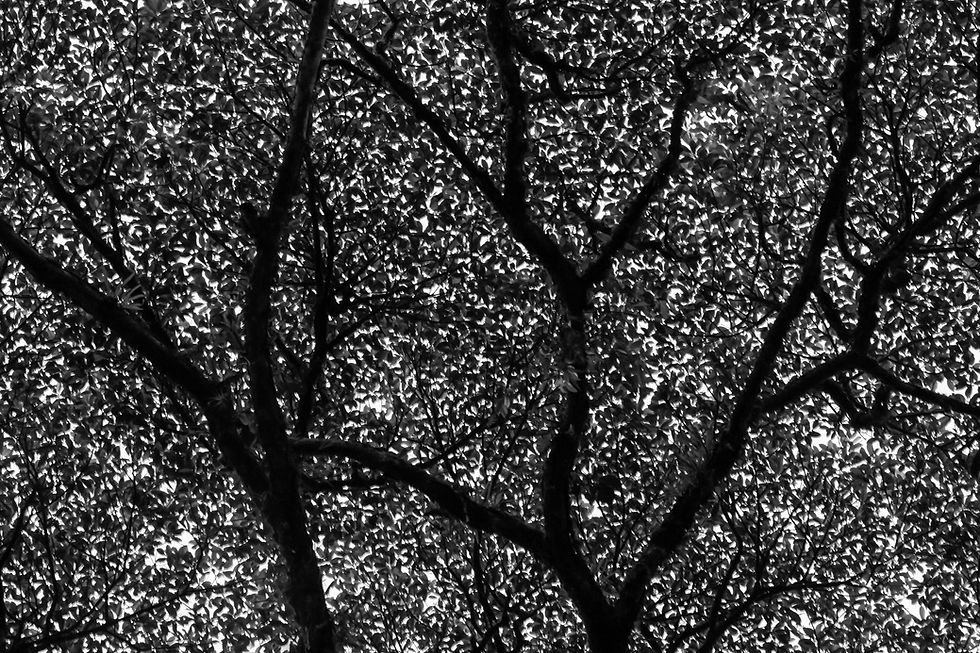The Well: Eight Branches
- Blake Storey
- Jun 12, 2024
- 4 min read
Updated: Jan 24, 2025

Traditional Chinese Medicine
Almost everyone knows what Acupuncture is, but few know it is just one part of a much larger holistic healing system known as Traditional Chinese Medicine (TCM). There are eight distinct branches to the tree of TCM: acupuncture, massage, herbs, nutrition, exercise, meditation, feng-shui, and cosmology. They all incorporate the foundational principles of Chinese medicine, such as yin-yang and the five elements, but each has unique benefits and applications. Combining the branches as part of treatment creates a synergistic effect that leads to more benefits.
Acupuncture
This branch includes both acupuncture and moxibustion. Acupuncture involves the insertion of needles into various points on the body whereas moxibustion involves burning mugwort on or near those same points. These acupoints are located along the various meridians of the body and are used to balance the body's energy and promote healthy blood flow. Acupuncture and moxibustion are both effective tools for treating pain and other musculoskeletal issues. What most people don't know is that acupuncture is also effective for helping with internal issues like digestion, sleep, elimination, and any stress-related conditions.
Massage
Massage is an excellent complementary branch to acupuncture and includes cupping and scraping (guasha). Massage is a more direct approach to manipulating the body's tissues like muscles, tendons, and fascia, and is often necessary for cases involving trauma or injury. There are numerous styles of massage (myofascial, deep tissue, orthopedic, relaxation, Shiatsu, lymphatic, etc.) and each has its special use. Cupping and guasha are also used to treat respiratory conditions like acute and chronic cough, seasonal allergies, and congestion.
Herbs
Herbs are nature's original pharmacy. Almost every modern drug can traced to a chemical derived from ancient herbology. The Chinese herbal pharmacopeia includes over 400 herbs, minerals, and animal parts that are often mixed into formulas then boiled into teas. These teas are used orally or topically and work with the body's natural biochemistry to enhance its function. The range of issues that Chinese herbology can address is vast: gynecological issues, digestion, sleep, skin conditions, etc.
Nutrition
Chinese medicine emphasizes not only the nutritional components of food, but also their energetic properties. Each food has a particular effect on the body's balance of yin and yang, qi and blood, and various other tenets of TCM. Dietary intervention may be a necessary component to correcting certain disease patterns such as hypertension, diabetes, and other chronic issues. An overall health-promoting diet--rich in fruits and vegetables and good sources of protein and fats--is a must for staying fit and preventing future trouble.
Exercise
Exercise is the disciplined movement of the body to improve physical functioning and mental well-being. It is an essential ingredient to the health of every person, as we must move and interact with our environment in order to stay fit and capable. As we age we lose range of motion and strength in our muscles, joints, and bones which results in a loss of function and increased risk of injury. By developing strength, flexibility, coordination, balance, and the cardiovascular system, we promote the total health of the body. The Chinese have created numerous forms of physical activity such as qigong, taichi, and the various martial arts to train the physical vessel.
Meditation
In mind-body medicine, the mind is the other half of the health equation. Our beliefs shape our existence and can be a major asset (or impediment) to helping us improve. Meditation is a technology for helping to train the brain to be less reactive to distracting stimuli and more proactive. There are numerous ways to accomplish meditation. The simplest way is to first notice what thoughts occur throughout the day. Journaling is also a way to capture these thoughts, as is therapy. The next step is to define what kind of thoughts we would prefer to be having and redirect our intention to those. Meditation, like exercise, is an ongoing practice that must be worked at daily. Often times exercise (or other activities) can be very meditative, and people do their clearest thinking when they are engaging their bodies.
Feng-Shui
Feng-shui literally translates to 'wind-water,' and is the Chinese art of arranging our environment to best promote health. While this art may sound esoteric, it is actually quite practical. Simple concepts involve making our houses cozy, not to loud, and not in the way of any bad environmental risks like flooding, wind, or heavy traffic. Feng-shui also puts a high amount of emphasis on keeping room functions segregated, which has immense validity according to recent findings in behavior psychology. In homes we should have a designated place for leisure, for cooking, for work, and for sleep. The separation helps our subconscious mind to switch gears at the appropriate times. Feng-shui also extends to the use chemicals, colors, and plants in home.
Cosmology
This final branch of TCM sounds mystical, but it need not be. Cosmology refers to the place of each person in reference to the larger community and universe. This can be a certain religion or spiritual calling, a life's purpose, a career, or a particular family dynamic. Cosmology looks at how the individual fits in with the patterns that surround them and looks to cultivate the most harmonious use of their time and resources in this ecosystem. This level of analysis takes a fair deal of patience, focus, and trust but can yield untold benefits when properly pursued.



Comments